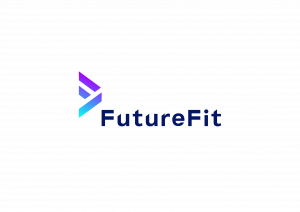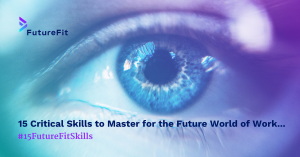
Future Fit Skills - Growth mindset
Do you believe qualities such as intelligence and talent are fixed or changeable traits?
JOHANNESBURG, GAUTENG, SOUTH AFRICA, August 25, 2022 /EINPresswire.com/ -- "Decades of scientific research into motivation shows that a ‘growth mindset’ - which holds that skills and abilities can be improved in ways that shape the purpose of the work that you do - leads to academic achievement, relational fulfillment and professional success. Future Fit leaders with a growth mindset are those who embrace challenges and persevere when faced with adversity. They are leaders who are willing to take on complex tasks and learn through their efforts. They do no fear failure, nor do they see success as final,” says Dr Eric Albertini of the Future Fit Academy
The concept of a growth mindset was created by psychologist Carol Dweck and made popular in her book, “Mindset: The New Psychology of Success”. In recent years, this concept has been taken into the workplace. According to Dweck, a mindset is a self-perception or “self-theory” that people hold about themselves. Believing that you are either “intelligent” or “unintelligent” is a simple example of a mindset. It is this mindset that has a deep effect on learning success, skill acquisition, personal relationships, professional success and many other dimensions of life. In short, mindset is what you value, and guides the corresponding choices that you make.
A key area of Dweck’s research is that of the fixed versus growth mindset. “With a ‘fixed mindset’, people believe that qualities such as intelligence or talent are fixed traits and spend their time documenting their intelligence or talent rather than developing them. A person with a fixed mindset believes that talent alone creates success and effort has no impact.
“With a growth mindset, people believe that intelligence and talent can be developed through dedication and hard work, and that these are just the starting point. This mindset creates a love of learning and a resilience that is essential for great accomplishment. Here ‘hard work beats talent, when talent does not work hard’. The main difference between the two mindsets is the belief in the permanence or changeability of intelligence and ability,” explains Dr Albertini.
There are a number of key risks and inhibitors of a fixed mindset. “Firstly, it decreases self-knowledge. The most damaging effect of a fixed mindset is the emphasis on external rewards and validations rather than internal development. It also inhibits risk-taking due to a fear of failure, limiting your growth opportunities and decreasing motivation. Thirdly, it causes unhealthy competition in that self-worth is linked only to extrinsic accomplishments such as academic scores, trophies or professional status,” he adds.
The difference between fixed and growth mindsets can also significantly impact workplace performance. In addition to the personal development benefits, a growth mindset makes employees better team players. “Managers with a growth mindset benefit their team substantially in a number of ways. A growth-oriented manager is open to feedback and ideas from employees without interpreting it as skepticism towards their capabilities and leadership ability. Feedback is seen as an opportunity for improvement, rather than a personal slight. A growth-oriented manager does not subscribe to doing things the way they have always been done – but rather embraces opportunities to innovate. Regarding coaching and mentoring, managers with growth mindsets are better at approaching and guiding people because they believe that one’s ability can be cultivated and developed. They are driven to invest more into coaching, training and mentoring and a growth mindset leader nurtures a growth culture in the organization,” he says.
“On the flipside, managers with fixed mindsets tend to believe in the initial impressions they have of people and their staff - if the manager regards an employee as a high performer or poor performer, they retain this opinion even when an employee shows regression or improvement in their performance. Conversely, a growth-oriented leader will be more responsive to the changes in their employees, meaning both negative and positive changes are well-noted regardless of their previous performance,” says Dr Albertini.
Leaders with a Growth Mindset achieve greater diversity, drive motivation and achievement and inspire more, make room for growth and facilitate a learning culture, are feedback fit and encourage dialogue, and they seek out challenges and don’t fear failure.
“Much research has been done on Growth Mindset, yet there are still misconceptions about what it is and isn’t. There are three common myths to be aware of are. First is ‘you either have it or you don’t’. This is simply not true! We all have a mix of fixed and growth mindsets that change based on our experiences and the feedback received. The second myth is that a growth mindset is about being positive. But it’s more than a simplistic view of being positive or optimistic. Growth mindset means taking feedback, learning from experience, and coming up with strategies for improving, even when exceedingly uncomfortable. The third myth is that praise builds a growth mindset. However, it depends on what you’re praising. The important thing is how a person approached a challenge, not how hard they worked, or how successful they were,” he explains.
The good news is that a Growth Mindset can be developed. Dr Albertini defines five mindset shifts to make:
• Acknowledge and embrace imperfections and see them as an opportunity to grow from.
• View challenges as opportunities to learn – go beyond your comfort zone and push yourself.
• Reframe what FAIL means – adopt a ‘First Attempt in Learning’ approach.
• Stop seeking approval – don’t prioritise approval over learning
• Value the process of trying and working through a challenge, rather than simply the end result. The journey matters.
‘Growth Mindset’ is just one of the 15 Future Fit skills that the Future Fit Academy provides a comprehensive self-assessment index that assesses how effective you are in the areas that are most important in the world of work today. The Future Fit Index is structured for both individuals and corporate environments – supporting the entrepreneur looking to improve their ability to compete more effectively and grow their business in a volatile and competitive world, the manager looking to develop and grow into a leadership role, through to the human capital specialist looking to inculcate a winning, future fit culture to drive business market leadership.
Trent Lockstone
Future Fit Academy
+27 11 019 0019
email us here
Visit us on social media:
LinkedIn
Distribution channels: Business & Economy, Culture, Society & Lifestyle, Education, Technology, World & Regional
Legal Disclaimer:
EIN Presswire provides this news content "as is" without warranty of any kind. We do not accept any responsibility or liability for the accuracy, content, images, videos, licenses, completeness, legality, or reliability of the information contained in this article. If you have any complaints or copyright issues related to this article, kindly contact the author above.
Submit your press release


